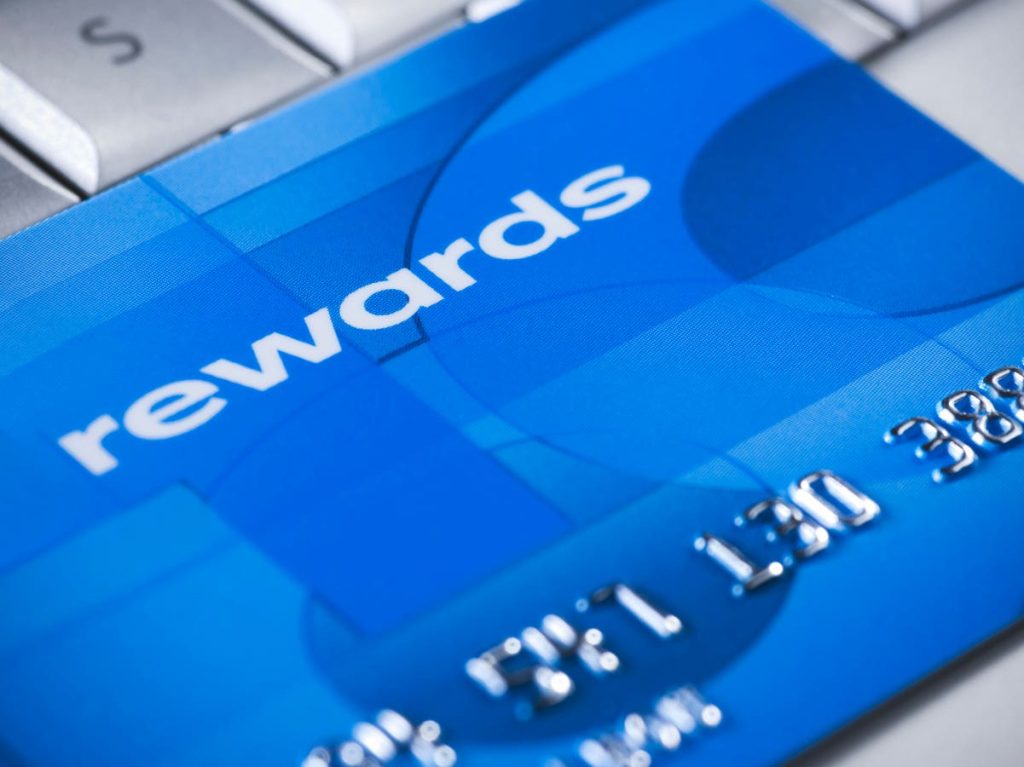Credit Card Reward Programs Under Scrutiny by Federal Regulators
Whether it’s points, miles, or cashback, it’s nice to get rewarded for shopping. But the lure of rewards programs can encourage people to apply for credit cards and use them to earn free airline tickets or hotel nights, and maybe not focus on fees and high interest rates. As credit card reward programs, especially those run by the airlines, have become complex and confusing, cardholders have grown increasingly frustrated. The CFPB received more than 1,200 complaints about credit card rewards in 2023, an increase of more than 70% from pre-pandemic levels. [Consumers’ Checkbook]
Share of U.S. Credit Cards Past Due Climbs to Highest Since 2012
The share of credit card balances past due reached a series high in Federal Reserve Bank of Philadelphia data back to 2012, adding to a variety of figures indicating emerging fissures in the US economy. Some 2.6% of credit card balances were 60 days past due in the first quarter, according to data published Wednesday. That’s up from a low of 1.1% reached in 2021, when consumers were bolstered by pandemic-era support programs. [Bloomberg]
Banks Are Bracing for Consumers to Stop Paying Off Their Credit Cards
In the second quarter, JPMorgan Chase, Bank of America, Citigroup, and Wells Fargo all raised their provisions for credit losses from the prior quarter. These provisions are the money that financial institutions set aside to cover any potential losses from credit risk, including delinquent or bad debt and lending, like commercial real estate loans. The built-up stores show banks bracing for a riskier environment, where both secured and unsecured loans could create bigger losses for some of the nation’s largest banks. A recent analysis of household debt by the New York Fed found that Americans owe a collective $17.7 trillion on consumer loans, student loans, and mortgages. Credit card issuance and, subsequently, delinquency rates are also on the rise as people’s pandemic-era savings run out and they rely more and more on credit. [Quartz]
Capital One Customers Sue to Block $35 Billion Discover Merger
Banking giant Capital One and credit card issuer Discover Financial have been hit with a lawsuit claiming their proposed $35 billion merger would reduce competition, drive up prices and should be stopped. The proposed class action filed on Monday in Alexandria, Virginia federal court by two Capital One customers in Vermont and New Jersey, said the deal would violate U.S. antitrust law. The merger would create the biggest U.S. credit card issuer by balance and sixth-largest U.S. bank by assets. [Reuters]
New Rise Credit Card to Make Tuition Payments Rewarding
Rise has opened the waitlist for a new credit card designed to reward tuition payments, whether K-12 private school, university or graduate school. The idea is to reward payments that don’t usually make sense by credit card, since most schools tack on a fee to pay by card. The card is a no annual fee metal card that earns 1x on tuition with no fee (and they let you ACH the money or send a check); 3x on dining; 2x on groceries and 1x on everything else. There are no foreign transaction fees and points don’t expire. Points appear to be worth a penny apiece towards cash back at 42 merchants. Think of this as trying to do for student tuition what Bilt does for rent. [View From The Wing]
Britain Will Soon Lay Out New Plans to Regulate ‘Buy Now, Pay Later’ Firms Like Klarna After Delays
Britain’s new Labor government will soon set out updated plans to regulate the “buy now, pay later” industry. A Treasury department spokesperson said the government will do so shortly. “Regulating Buy Now Pay Later products is crucial to protect people and deliver certainty for the sector.” [CNBC]
Credit Card Rewards Are Tearing Friends Apart
Consumers love their rewards. In a recent poll from Ipsos, 71% of Americans surveyed said they had some sort of rewards, points, or cash-back card, and 80% of those with such a card said they valued their rewards. But maybe we love our credit card rewards too much, to the point that it’s making us act in less-than-ideal ways toward those we hold near and dear. Money is always complicated, and the standoff over who gets 1.5% cash back or three times the airline miles after paying for brunch is no exception. And it seems like no matter who picks up the check, everyone is a bit dissatisfied: For every Jane angry at Joe for insisting on putting everything on his credit card so he can upgrade his honeymoon to Singapore, there’s a Mary fuming at Mike for shortchanging her when he paid back his part of the bar tab, making the points she got for paying the up-front cost a wash. [Business Insider]
Big Changes to the American Express Gold Card: New Benefits and a Higher Annual Fee
The American Express Gold Card’s annual fee has increased from $250 to $325 for new cardholders. For existing Gold cardholders, the new fee takes effect with renewal dates on or after Oct. 1, 2024. The increased annual fee is offset by two new statement credit offers. Eligible purchases will earn: up to $84 in Dunkin’ credit each year (up to $7 back per month); and up to $100 in Resy credit each year (up to $50 semi-annually) for in-person dining at U.S. Resy restaurants and other eligible Resy purchases. [CNBC]
CrowdStrike Faces Backlash as ‘Thank You’ Gift Cards Are Blocked
An attempt by the cybersecurity firm CrowdStrike to thank workers who tackled the recent global IT outage with a $10 UberEats voucher hit a stumbling block after Uber flagged the gesture as potential fraud. CrowdStrike confirmed that it sent the $10 voucher to “teammates and partners” who helped customers affected by a faulty software update it issued. The failure paralyzed 8.5 million devices around the world and led to chaos at airports, hospital appointment cancellations and TV channel blackouts. [The Guardian]
Mastercard Doubles Fraud Detection Rate with Generative AI
Mastercard has unveiled a new approach to identify compromised payment cards, leveraging a combination of generative artificial intelligence and graph technology. The company reports that this method has doubled its detection rate for compromised cards before they can be used fraudulently. The new technique could have far-reaching implications for the broader commerce landscape. Online and brick-and-mortar retailers benefit from reduced fraud losses and increased transaction security. The enhanced detection capabilities could lead to fewer declined transactions due to suspected fraud, potentially boosting sales and improving customer experience. For eCommerce platforms, where card-not-present fraud is a persistent challenge, Mastercard’s innovation could provide a much-needed layer of protection. [PYMNTS]
Mastercard, JPMorgan in FTC Study on Consumer Pricing
US regulators are examining how companies including Mastercard, JPMorgan Chase and a portfolio company of a Goldman Sachs Group Inc. unit provide clients with algorithms that use consumers’ personal data to tailor product pricing to individuals, what the agency termed “surveillance pricing.” The US Federal Trade Commission said Monday it sent subpoenas to eight firms seeking information about what pricing products they offer, the data they collect and how it’s used to target which consumers receive offers. [Bloomberg]
Read the full article here









